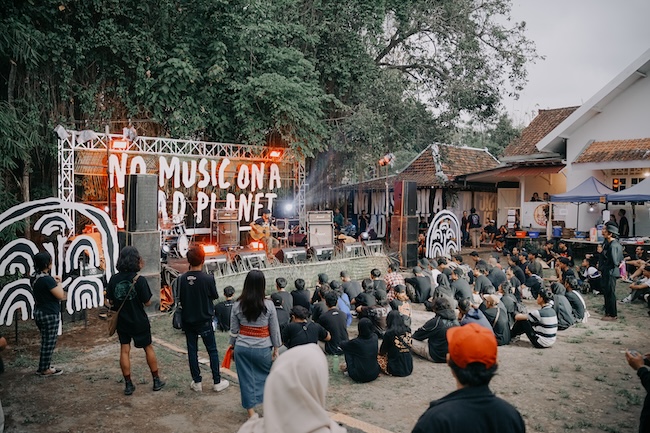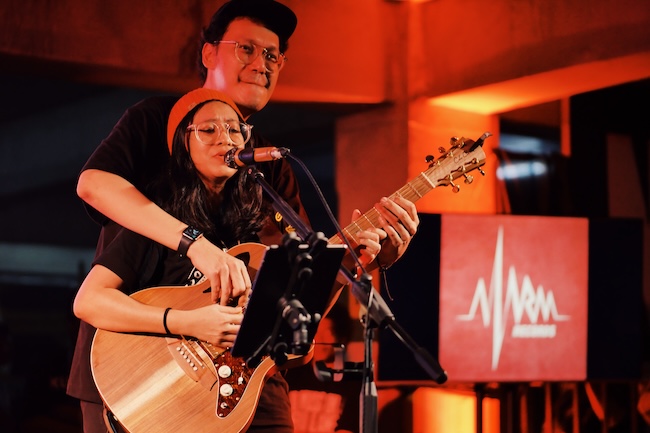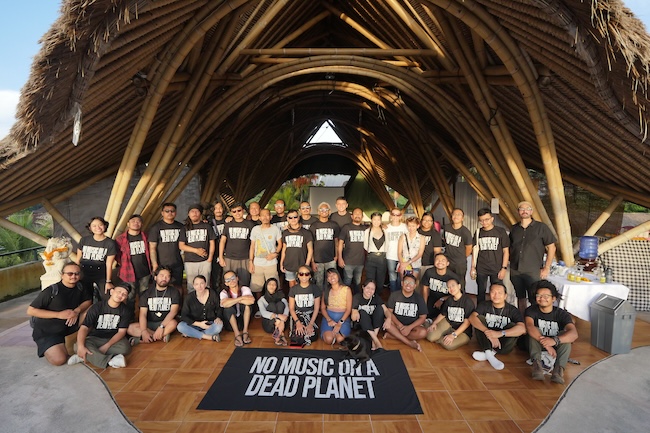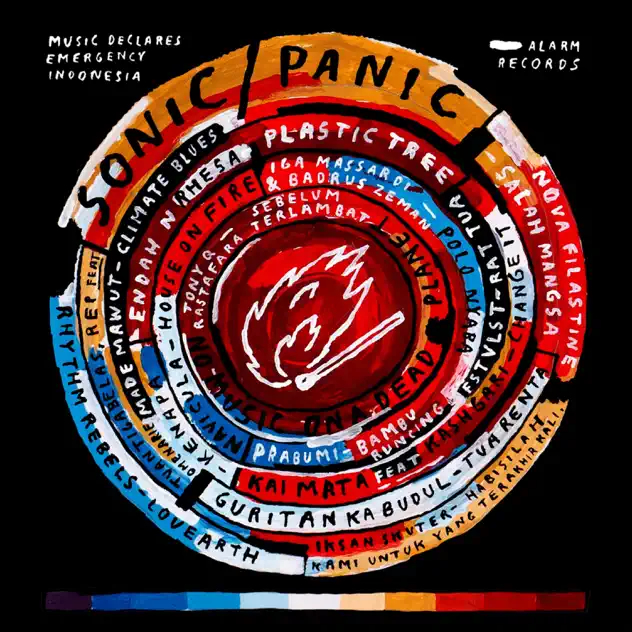Self-education and lived experience of the impacts of climate change, are driving a grassroots environmental movement
Julia Winterflood
Former military general Prabowo Subianto was officially announced as Indonesia’s next president on 20 March, alongside his vice-presidential running mate Gibran Rakabuming Raka, the eldest son of Indonesia’s current leader, Joko Widodo (Jokowi). Environmentalists are worried about their win.
During the election campaign the pair committed to continuing food estate projects that have caused deforestation and to prioritise ‘green’ energy derived from palm oil, which has also led to deforestation. Indonesia’s rainforests are crucial to slowing climate change as they draw planet-warming carbon dioxide out of the atmosphere.
Although Prabowo has said he supports gradually transitioning Indonesia, the world’s largest exporter of coal, away from fossil fuels, the country is expanding its coal-burning power plants to supply its booming nickel processing facilities. Widodo’s government banned the export of nickel ore to ensure it is processed in the country, and Prabowo has pledged to uphold the ban, which will continue to drive demand for coal power.
Despite being part of a US$20 billion global agreement to transition Indonesia away from coal, the nation’s climate targets have been assessed as ‘critically insufficient’ by Climate Action Tracker, an independent organisation that rates country-level emissions targets.
In surveys of young people carried out during the recent election campaign by the Center of Economic and Law Studies (CELIOS) and Gadjah Mada University’s UniTrend Research Institute, Prabowo was singled out as the least likely of the three presidential candidates to be sensitive towards environmental issues. The surveys also revealed that 81 percent of young Indonesians agree that the government should declare a climate emergency and act swiftly to reduce the impacts of climate change.
Music declares a climate emergency
In 2023, a diverse group of musicians and environmental organisations united to form the Indonesian chapter of Music Declares Emergency (MDE). Founded in the UK in 2019, MDE is an independent group of artists and music industry professionals calling for immediate governmental response to climate change, while personally committing to reducing the music industry’s environmental impacts.

To date, over 7,000 artists and organisations have pledged their support, including major acts such as Thom Yorke, Neil Young, and Billie Eilish, and two of the world’s biggest record labels, Universal and Warner. But don’t assume it’s all scathing lyrics and electric guitars; the Classical Declares branch of MDE was formed in 2021 to incorporate classical, opera, and choral artists.
Indonesia is the first country in Asia to join MDE, under the auspices of the Indonesian Knowledge, Climate, Arts & Music Lab (which goes by the abbreviation IKLIM, the Indonesian word for ‘climate’). Comprising musicians, artists, environmental organisations and climate experts, IKLIM produces music, art and other content to educate, inspire and mobilise individuals and communities to take action on climate change, accelerate the renewable energy transition, and ensure live entertainment events are as green as possible.
Over four days in June 2023, IKLIM conducted workshops and knowledge sharing sessions on climate change, renewable technology, and fossil fuels for a large group of prominent Indonesian musicians. The group included Bali-based rock band Navicula, folk and blues duo Endah N Rhesa, and Nova Ruth, one half of multimedia duo Filastine & Nova, who have spent the past four years circling the globe by sea aboard the Arka Kinari. When moored at public waterfronts, the wind and solar-powered ship transforms into a platform for performances that meld art, science and mythology to promote climate change resilience.
After the workshops, Nova posted on her Instagram account: ‘The facts about the earth being increasingly destroyed by human activities are indeed bitter. Only art can gently rub the shoulders and say we can get through this crisis together. We care and we are acting in whatever way we can. Give us time to process and cook our ideas together. Meanwhile, prepare your ears and mind to be moved by the rhythm.’
Sounding the alarm
Armed with data and inspiration from the workshops, the musicians wrote and recorded 13 tracks spanning rock, pop, reggae, hip-hop, blues and electronica. Despite the stylistic diversity, each song is unified in focus: the call for climate action. IKLIM’s newly founded record label and Indonesia’s first climate-conscious music company, Alarm Records, released the tracks as a compilation album titled sonic/panic on all major streaming platforms in November last year.
Featuring concentric circles of fiery reds and icy blues enveloping a flaming match, the album’s artwork was designed by renowned contemporary artist Sirin Farid Stevy. Farid is also the vocalist of FSTVLST, whose rousing song ‘Rat Tua’ is the third track on the album. According to the artist, the boldly contrasting colors symbolise humanity's dual role as both the creator of climate change and catalyst of its acceleration.
Over 1,500 people gathered for the launch of sonic/panic at the inaugural IKLIM Fest in Ubud, Bali on 4 November 2023. DietPlastik Indonesia, a non-profit that has been advocating for policies to reduce single-use plastic waste in Indonesia for the past decade, implemented strict reuse protocols at the event. All festival goers and F&B vendors were prohibited from using single-use plastic products, which were replaced with reusable packaging, cutlery and cups — including for backstage refreshments.
IKLIM Fest generated 87 kilograms of organic waste, composted by community-led waste management business Rumah Kompos Padangtegal, while 7 kilos of food waste were processed into sustainable animal feed by social enterprise Magi Farm. At the end of music festivals in many parts of the world, a venue strewn with a sea of plastic cups, aluminum cans and cigarette butts is a familiar yet sad sight. At the end of IKLIM Fest, all remaining inorganic waste was directed to collectors, and many attendees left carrying tree saplings to plant as part of IKLIM’s carbon offset efforts.
Hundreds more have since joined sonic/panic live events in Yogyakarta and Malang. In Yogya, attendees were required to share a video of themselves planting a tree as a prerequisite for venue entry, while in Malang, almost a third chose a ticket option that included a banyan tree planted on their behalf. At each event, water refill stations were provided for attendees, artists, crew and committee members. The environmental policies of IKLIM events could form the blueprint for responsible waste management and carbon offset initiatives for all live entertainment events in Indonesia.
Climate anxiety
Several of the musicians who have contributed to sonic/panic hail from parts of the country that are severely impacted by climate change, such as Sulawesi, and this lived experience has instilled their songs with heightened urgency and deeper poignancy.

‘Will you sing for the dead earth? Even a sad song will be meaningless,’ croons Icong, vocalist of the experimental folk duo Guritan Kabudul, who penned sonic/panic’s richly layered and masterfully produced opening track, ‘Tua Renta’. The duo are from the small city of Tentena in Poso Regency, Central Sulawesi, which lies on the northern tributary of Indonesia’s third largest lake, Danau Poso. Icong says his hometown once enjoyed a cooler climate but is now getting hotter by the day due to its proximity to nickel and coal mines.
Before joining IKLIM, Icong admitted that he and his bandmate Raymond knew little about climate change, and even held the misperception that its impacts were only felt by urbanites. The workshops ‘completely changed our mindset,’ he says, and this in turn has significantly impacted their music.
‘Demanding action on climate change isn’t just important for musicians, but for every individual,’ Icong says. ‘What we give a voice to, and what we do, is for our earth, which we share with everyone. It’s also important for musicians and artists, as the power of music to impact behavior is extremely strong and this is what we’re trying to achieve. Hopefully these songs make our listeners aware that we are experiencing a climate emergency. Our songs express our anxiety.’
The heartbeat of every movement
As well as bridging various musical genres, IKLIM embraces musicians with diverse identities, such as openly queer singer-songwriter Kai Mata. A leading advocate for LGBTQI+ rights and representation in Indonesia and beyond, she describes her experience of participating in the campaign as enlightening and transformative.

‘Music is the heartbeat of every movement, and musicians play a crucial role in the call for climate action due to our unique ability to connect with people on a deeper emotional level and with a wide international audience,’ she says. ‘IKLIM proves that artists play an influential role in shaping public perception and driving positive actions that lead to long-lasting change.’
For Kai Mata, whose catchy track ‘Change It’ features Kashgari, one of her long-term mentors and supporters, inclusion in the campaign shows the strength in environmental crisis responses that broaden their scope to human rights. ‘This sends a clear message that environmental issues and human rights issues are connected.’
In his first presidential campaign, Joko Widodo made his love for rock music well known, particularly the band Metallica. During a 2017 visit to Denmark, he was presented with the band’s Master of Puppets album on vinyl by the country’s prime minister, which had been signed for Jokowi by Metallica’s Danish drummer, Lars Ulrich. Although Prabowo is known to deploy his signature dance moves at rallies, his taste in music is yet to be widely explored.
As it captures the voices, concerns and calls to action of young Indonesians who see environmental issues and a just energy transition as crucial areas for the country’s new leader to tackle, Prabowo should stream sonic/panic from his platform of choice.
As Icong asks in the album’s opening track ‘Tua Renta’, ‘From where will the light come if we continue to close our eyes?’
Julia Winterflood (julia.winterflood@gmail.com) is a freelance writer, editor and translator based in Indonesia.




